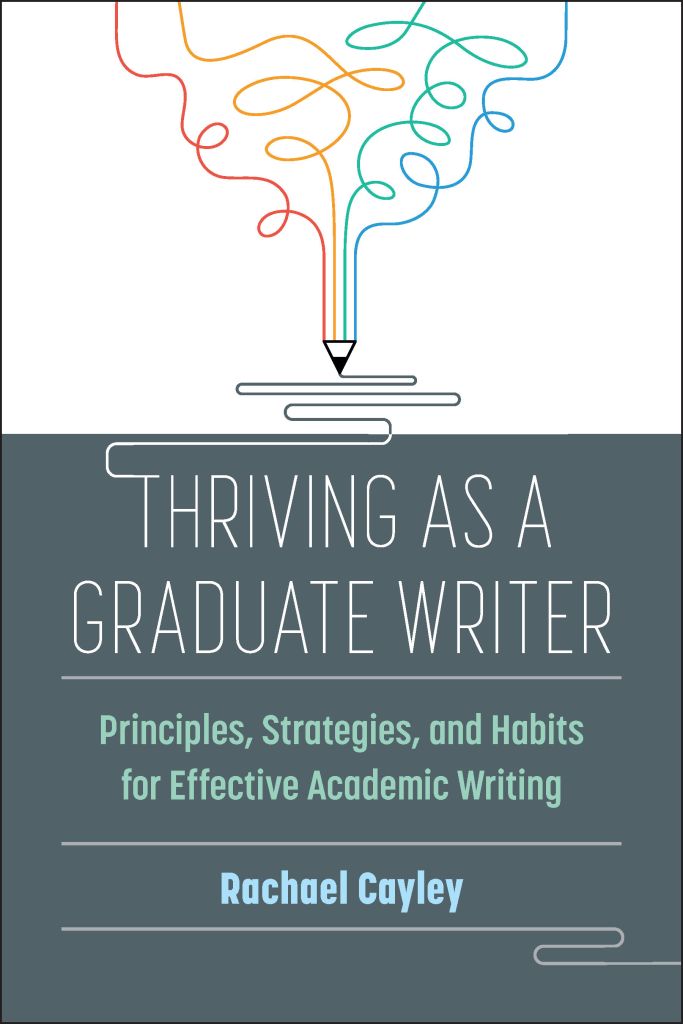If you’re a regular reader of this blog, you will know that I’ve spent the last few years working on a book about graduate writing. That process is now drawing to a close: Thriving as a Graduate Writer will be published in June! Between now and then, I’m going to use this space to share brief excerpts. In addition to my discussion of principles, strategies, and habits for effective academic writing, the book has short ‘asides’ that allowed me to engage with topics outside that main narrative. Over the next four months, I’ll share my favourites of those asides. As always, I’d love to hear what you think!

Nobody’s First Language
If you’ve had any graduate writing support, you may have heard a version of this saying: “Academic writing is nobody’s first language.” This sentiment is generally used in a manner that is meant to be empowering. If you are a multilingual graduate writer, it tells you that everyone struggles with academic writing. If you are writing in your first language, it tells you that your struggles with graduate writing are still legitimate. In short, since academic writing isn’t simply about language, linguistic status shouldn’t be seen as the determining factor in your ability to thrive in this area. While this principle seems accurate, it shouldn’t be used to suggest that every novice academic writer is in the same boat. Any such flattening of different experiences of academic writing acquisition risks diminishing the challenge of learning to communicate a complex research agenda in a subsequent language. And it also risks minimizing the implications of social capital for academic writing acquisition. The original quote from which this saying derives makes this nuance clear: “Academic language is a dead language for the great majority of French people, and is no one’s mother tongue, not even that of children of the cultivated classes. As such, it is very unequally distant from the language actually spoken by the different social classes. To decline to offer a rational pedagogy is, in this context, to declare that all students are equal in respect of the demands made by academic language…” (Bourdieu and Passeron 1997, 67). Acknowledging this “unequal distance” is crucial. Academic writing may be nobody’s first language, but some graduate writers will have more familiarity with and access to academic modes of expression. As such, each graduate writer will need to expend a particular amount of emotional and cognitive labor to develop their academic writing fluency. (I’m grateful to Alex Ding for providing the actual quote underlying this saying and for his insightful discussion of the broader implications surrounding this issue.)
Thriving as a Graduate Writer will be available in early June from the University of Michigan Press. To pre-order your copy, visit the book page. Order online and save 30% with discount code UMS23!


